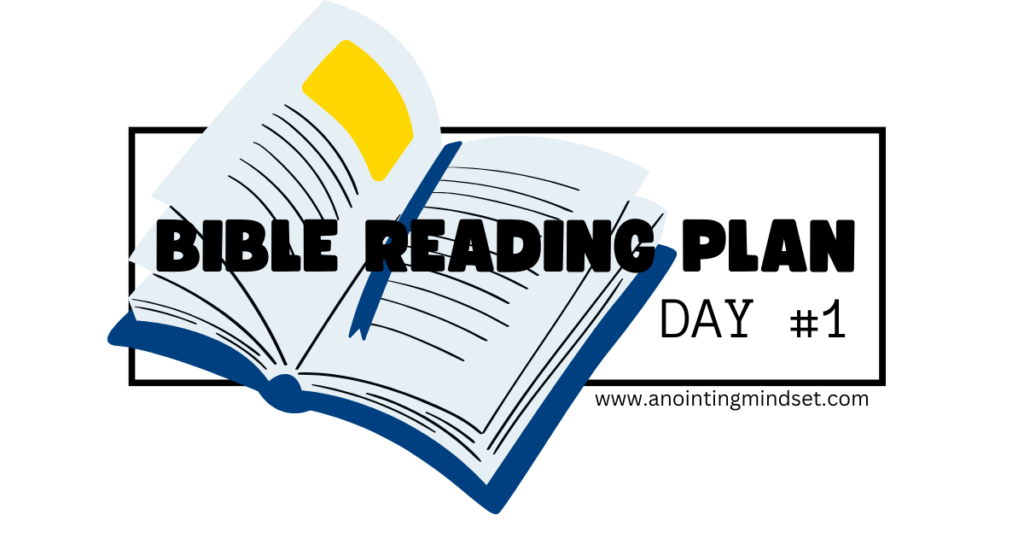Daily Bible Reading Plan | KING JAMES VERSION (KJV)
Monday, March 25, 2024
Deuteronomy 13
“[1] If there arise among you a prophet, or a dreamer of dreams, and giveth thee a sign or a wonder,
[2] And the sign or the wonder come to pass, whereof he spake unto thee, saying, Let us go after other gods, which thou hast not known, and let us serve them;
[3] Thou shalt not hearken unto the words of that prophet, or that dreamer of dreams: for the LORD your God proveth you, to know whether ye love the LORD your God with all your heart and with all your soul.
[4] Ye shall walk after the LORD your God, and fear him, and keep his commandments, and obey his voice, and ye shall serve him, and cleave unto him.
[5] And that prophet, or that dreamer of dreams, shall be put to death; because he hath spoken to turn you away from the LORD your God, which brought you out of the land of Egypt, and redeemed you out of the house of bondage, to thrust thee out of the way which the LORD thy God commanded thee to walk in. So shalt thou put the evil away from the midst of thee.
[6] If thy brother, the son of thy mother, or thy son, or thy daughter, or the wife of thy bosom, or thy friend, which is as thine own soul, entice thee secretly, saying, Let us go and serve other gods, which thou hast not known, thou, nor thy fathers;
[7] Namely, of the gods of the people which are round about you, nigh unto thee, or far off from thee, from the one end of the earth even unto the other end of the earth;
[8] Thou shalt not consent unto him, nor hearken unto him; neither shall thine eye pity him, neither shalt thou spare, neither shalt thou conceal him:
[9] But thou shalt surely kill him; thine hand shall be first upon him to put him to death, and afterwards the hand of all the people.
[10] And thou shalt stone him with stones, that he die; because he hath sought to thrust thee away from the LORD thy God, which brought thee out of the land of Egypt, from the house of bondage.
[11] And all Israel shall hear, and fear, and shall do no more any such wickedness as this is among you.
[12] If thou shalt hear say in one of thy cities, which the LORD thy God hath given thee to dwell there, saying,
[13] Certain men, the children of Belial, are gone out from among you, and have withdrawn the inhabitants of their city, saying, Let us go and serve other gods, which ye have not known;
[14] Then shalt thou inquire, and make search, and ask diligently; and, behold, if it be truth, and the thing certain, that such abomination is wrought among you;
[15] Thou shalt surely smite the inhabitants of that city with the edge of the sword, destroying it utterly, and all that is therein, and the cattle thereof, with the edge of the sword.
[16] And thou shalt gather all the spoil of it into the midst of the street thereof, and shalt burn with fire the city, and all the spoil thereof every whit, for the LORD thy God: and it shall be an heap for ever; it shall not be built again.
[17] And there shall cleave nought of the cursed thing to thine hand: that the LORD may turn from the fierceness of his anger, and shew thee mercy, and have compassion upon thee, and multiply thee, as he hath sworn unto thy fathers;
[18] When thou shalt hearken to the voice of the LORD thy God, to keep all his commandments which I command thee this day, to do that which is right in the eyes of the LORD thy God.”
Deuteronomy 14
“[1] Ye are the children of the LORD your God: ye shall not cut yourselves, nor make any baldness between your eyes for the dead.
[2] for thou art an holy people unto the LORD thy God, and the LORD hath chosen thee to be a peculiar people unto himself, above all the nations that are upon the earth.
[3] Thou shalt not eat any abominable thing.
[4] These are the beasts which ye shall eat: the ox, the sheep, and the goat,
[5] The hart, and the roebuck, and the fallow deer, and the wild goat, and the pygarg, and the wild ox, and the chamois.
[6] And every beast that parteth the hoof, and cleaveth the cleft into two claws, and cheweth the cud among the beasts, that ye shall eat.
[7] Nevertheless these ye shall not eat of them that chew the cud, or of them that divide the cloven hoof; as the camel, and the hare, and the coney: for they chew the cud, but divide not the hoof; therefore they are unclean unto you.
[8] And the swine, because it divideth the hoof, yet cheweth not the cud, it is unclean unto you: ye shall not eat of their flesh, nor touch their dead carcase.
[9] These ye shall eat of all that are in the waters: all that have fins and scales shall ye eat:
[10] And whatsoever hath not fins and scales ye may not eat; it is unclean unto you.
[11] Of all clean birds ye shall eat.
[12] But these are they of which ye shall not eat: the eagle, and ossifrage, and the ospray,
[13] And the glede, and the kite, and the vulture after his kind,
[14] And every raven after his kind,
[15] And the owl, and the night hawk, and the cuckow, and the hawk after his kind,
[16] The little owl, and the great owl, and the swan,
[17] And the pelican, and the gier eagle, and the cormorant,
[18] And the stork, and the heron after her kind, and the lapwing, and the bat.
[19] And every creeping thing that flieth is unclean unto you: they shall not be eaten.
[20] But of all clean fowls ye may eat.
[21] Ye shall not eat of any thing that dieth of itself: thou shalt give it unto the stranger that is in thy gates, that he may eat it; or thou mayest sell it unto an alien: for thou art an holy people unto the LORD thy God. Thou shalt not seethe a kid in his mother’s milk.
[22] Thou shalt truly tithe all the increase of thy seed, that the field bringeth forth year by year.
[23] And thou shalt eat before the LORD thy God, in the place which he shall choose to place his name there, the tithe of thy corn, of thy wine, and of thine oil, and the firstlings of thy herds and of thy flocks; that thou mayest learn to fear the LORD thy God always.
[24] And if the way be too long for thee, so that thou art not able to carry it; or if the place be too far from thee, which the LORD thy God shall choose to set his name there, when the LORD thy God hath blessed thee:
[25] Then shalt thou turn it into money, and bind up the money in thine hand, and shalt go unto the place which the LORD thy God shall choose:
[26] And thou shalt bestow that money for whatsoever thy soul lusteth after, for oxen, or for sheep, or for wine, or for strong drink, or for whatsoever thy soul desireth: and thou shalt eat there before the LORD thy God, and thou shalt rejoice, thou, and thine household,
[27] And the Levite that is within thy gates; thou shalt not forsake him; for he hath no part nor inheritance with thee.
[28] At the end of three years thou shalt bring forth all the tithe of thine increase the same year, and shalt lay it up within thy gates:
[29] And the Levite, (because he hath no part nor inheritance with thee,) and the stranger, and the fatherless, and the widow, which are within thy gates, shall come, and shall eat and be satisfied; that the LORD thy God may bless thee in all the work of thine hand which thou doest.”
Luke 20
“[1] And it came to pass, that on one of those days, as he taught the people in the temple, and preached the gospel, the chief priests and the scribes came upon him with the elders,
[2] And spake unto him, saying, Tell us, by what authority doest thou these things? or who is he that gave thee this authority?
[3] And he answered and said unto them, I will also ask you one thing; and answer me:
[4] The baptism of John, was it from heaven, or of men?
[5] And they reasoned with themselves, saying, If we shall say, From heaven; he will say, Why then believed ye him not?
[6] But and if we say, Of men; all the people will stone us: for they be persuaded that John was a prophet.
[7] And they answered, that they could not tell whence it was.
[8] And Jesus said unto them, Neither tell I you by what authority I do these things.
[9] Then began he to speak to the people this parable; A certain man planted a vineyard, and let it forth to husbandmen, and went into a far country for a long time.
[10] And at the season he sent a servant to the husbandmen, that they should give him of the fruit of the vineyard: but the husbandmen beat him, and sent him away empty.
[11] And again he sent another servant: and they beat him also, and entreated him shamefully, and sent him away empty.
[12] And again he sent a third: and they wounded him also, and cast him out.
[13] Then said the lord of the vineyard, What shall I do? I will send my beloved son: it may be they will reverence him when they see him.
[14] But when the husbandmen saw him, they reasoned among themselves, saying, This is the heir: come, let us kill him, that the inheritance may be ours.
[15] So they cast him out of the vineyard, and killed him. What therefore shall the lord of the vineyard do unto them?
[16] He shall come and destroy these husbandmen, and shall give the vineyard to others. And when they heard it, they said, God forbid.
[17] And he beheld them, and said, What is this then that is written, The stone which the builders rejected, the same is become the head of the corner?
[18] Whosoever shall fall upon that stone shall be broken; but on whomsoever it shall fall, it will grind him to powder.
[19] And the chief priests and the scribes the same hour sought to lay hands on him; and they feared the people: for they perceived that he had spoken this parable against them.
[20] And they watched him, and sent forth spies, which should feign themselves just men, that they might take hold of his words, that so they might deliver him unto the power and authority of the governor.
[21] And they asked him, saying, Master, we know that thou sayest and teachest rightly, neither acceptest thou the person of any, but teachest the way of God truly:
[22] Is it lawful for us to give tribute unto Caesar, or no?
[23] But he perceived their craftiness, and said unto them, Why tempt ye me?
[24] Shew me a penny. Whose image and superscription hath it? They answered and said, Caesar’s.
[25] And he said unto them, Render therefore unto Caesar the things which be Caesar’s, and unto God the things which be God’s.
[26] And they could not take hold of his words before the people: and they marvelled at his answer, and held their peace.
[27] Then came to him certain of the Sadducees, which deny that there is any resurrection; and they asked him,
[28] Saying, Master, Moses wrote unto us, If any man’s brother die, having a wife, and he die without children, that his brother should take his wife, and raise up seed unto his brother.
[29] There were therefore seven brethren: and the first took a wife, and died without children.
[30] And the second took her to wife, and he died childless.
[31] And the third took her; and in like manner the seven also: and they left no children, and died.
[32] Last of all the woman died also.
[33] Therefore in the resurrection whose wife of them is she? for seven had her to wife.
[34] And Jesus answering said unto them, The children of this world marry, and are given in marriage:
[35] But they which shall be accounted worthy to obtain that world, and the resurrection from the dead, neither marry, nor are given in marriage:
[36] Neither can they die any more: for they are equal unto the angels; and are the children of God, being the children of the resurrection.
[37] Now that the dead are raised, even Moses shewed at the bush, when he calleth the Lord the God of Abraham, and the God of Isaac, and the God of Jacob.
[38] For he is not a God of the dead, but of the living: for all live unto him.
[39] Then certain of the scribes answering said, Master, thou hast well said.
[40] And after that they durst not ask him any question at all.
[41] And he said unto them, How say they that Christ is David’s son?
[42] And David himself saith in the book of Psalms, The LORD said unto my Lord, Sit thou on my right hand,
[43] Till I make thine enemies thy footstool.
[44] David therefore calleth him Lord, how is he then his son?
[45] Then in the audience of all the people he said unto his disciples,
[46] Beware of the scribes, which desire to walk in long robes, and love greetings in the markets, and the highest seats in the synagogues, and the chief rooms at feasts;
[47] Which devour widows’ houses, and for a shew make long prayers: the same shall receive greater damnation.”





